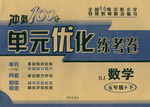题目内容
【题目】The boy ________ on the ground ________ to me that his hen _______ three eggs a day.
A. lies; lied; laid B. lying; lied; laid
C. lay; lied; lain D. lay; lying; has laid
【答案】B
【解析】考查动词。句意:躺在地上的男孩向我撒谎说他的母鸡每天下三个蛋”。lie-lay-lain躺下;lie-lied-lied说谎;lay-laid-laid孵蛋。lying为lie(说谎)的现在分词形式作伴随状语;had laid 是过去完成时,表示动作发生在lay on the ground之前。故选B。

练习册系列答案
 云南师大附小一线名师提优作业系列答案
云南师大附小一线名师提优作业系列答案 冲刺100分单元优化练考卷系列答案
冲刺100分单元优化练考卷系列答案
相关题目